Join a powerful, unprecedented alliance for better eye health for all.
Join IAPB-
Choose an alternate language here

This high-level virtual side event at the 74th World Health Assembly will discuss how countries can progress towards universal health coverage for eye care and achieve the new WHO global targets by 2030.
The event is hosted by the Government of Indonesia, IAPB, The Fred Hollows Foundation, Sightsavers, CBM, Light for the World and supported by The Government of Australia.
It will include keynote addresses from government officials; a technical briefing and update from the WHO; and a panel discussion featuring country examples of where progress is already being made.
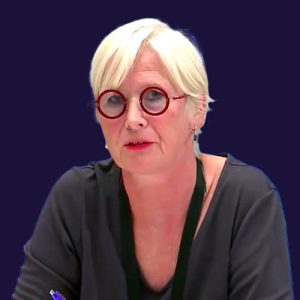
Director, Non-Communicable Diseases in the division of UHC/Communicable and Noncommunicable diseases, World Health Organization
Dr Bente Mikkelsen is Director, Non-Communicable Diseases in the division of UHC/Communicable and Noncommunicable diseases, WHO Headquarters (Geneva, Switzerland).
She was formerly Director, Division of Noncommunicable Diseases and Promoting Health through the Life-course at the World Health Organization Regional Office for Europe (Copenhagen, Denmark), Head of Secretariat for the Global Coordination Mechanism on the prevention and control of noncommunicable diseases (WHO GCM/NCD) at the World Health Organization Headquarters (Geneva, Switzerland) from its inception in 2014 as well as a former CEO of the Southern and Eastern Norway Regional Health Authority.
Dr Mikkelsen is trained as a Gynaecologist and Obstetrician and holds a Master’s degree in Health Administration and Management from the University of Oslo.
Her current focus is on achieving the SDGs through the reduction of premature deaths from NCDs in the context of WHO General Programme of Work, and working across sectors with multistakeholders, within and beyond the health sector using innovation, implementation research, health literacy and new technologies.
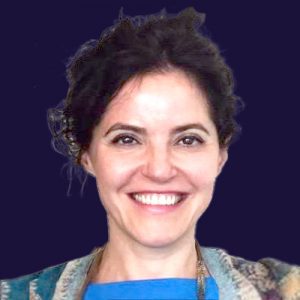
Unit Head Sensory functions, Disability and Rehabilitation, World Health Organization
Dr Alarcos Cieza oversees the World Health Organization’s work on vision, hearing, disability and rehabilitation in her position of Unit Head, Sensory Functions, Disability and Rehabilitation.
Prior to joining WHO in September 2014, she served as Chair and Professor of Medical Psychology at the Faculty of Social and Human Sciences at the University of Southampton in the United Kingdom. After obtaining her MSc in psychology in Madrid, Spain, she conducted a Master in Public Health and obtained a PhD in Medical Psychology from the Ludwig-Maximillians University in Munich, Germany.
She led the research unit for over ten years at the Department of Physical Medicine and Rehabilitation and then at the Pettenkofer School of Public Health at the Ludwig-Maximilians-University, Munich, Germany.
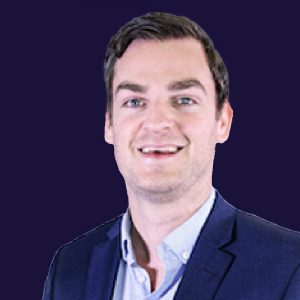
Technical Officer, Vision and Eye Care Programme, Department of Noncommunicable Diseases, World Health Organization
Dr Stuart Keel is a Technical Officer within the Vision and Eye Care Programme, Department of Noncommunicable Diseases, at the World Health Organization. In his current role, Dr Keel supports the implementation of the actions outlined in the 2020 World Health Resolution ‘Integrated people-centred eye care, including preventable vision impairment and blindness’.
Dr Keel holds a PhD in ophthalmic epidemiology from La Trobe University, Melbourne. Prior to joining WHO in 2019, he held positions as president of the Australian Orthoptics Association – Victorian Branch, lecturer within the Department of Clinical Vision Sciences at La Trobe University, Melbourne and principal investigator in ophthalmic epidemiology at the Centre for Eye Research Australia.
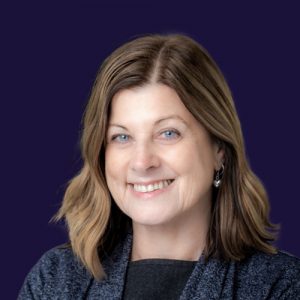
The Fred Hollows Foundation and Chair, IAPB Gender Equity Work Group
Jennifer has extensive experience working in government and the not for profit sector, leading a wide range of social marketing campaigns aimed at raising awareness, changing behaviour and influencing key decision makers. She has worked across the health, disability and international development sectors and has a reputation for fostering collaboration and delivering results by applying innovative strategic approaches to advocacy.
Under Jennifer’s leadership, Vision 2020 Australia was transformed from an aspiring peak body to a highly respected and successful organisation with a reputation as an international leader in the eye health and vision care sector.
Jennifer joined The Fred Hollows Foundation in 2016. In addition to managing sector engagement globally and leading advocacy efforts across The Foundation, she is a champion for gender equity working to end gender discrimination in eye health and embed equity and inclusion in all aspects of The Foundation’s work.
Jennifer is a Trustee on the Board of the International Agency for the Prevention of Blindness where she continues to promote positive action towards gender and inclusion, chairing the Gender Equity Work Group.
In 2019 Jennifer was awarded a fellowship under Harvard University’s Advanced Leadership Initiative. Throughout 2020-2021, Jennifer will engage in inter-disciplinary academic learning, leadership development and peer-to-peer collaboration to develop a social impact project focused on sustainable and equitable eye health.
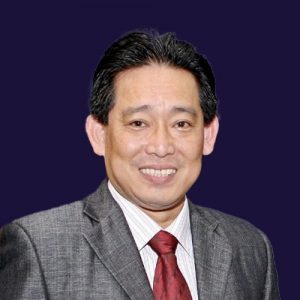
Director of Programs Implementation – Asia, The Fred Hollows Foundation
Dr Huynh Tan Phuc, an ophthalmologist, is currently Director of Programs Implementation- Asia of The Fred Hollows Foundation (FHF) (www.hollows.org.au).
Phuc holds a degree Doctor of Medicine (MD) from Medical University of Hue, Viet Nam, graduated in 1988, finished his advance training on ophthalmology in 1990. He worked for a Government Hospital as Chief of Eye department and joined World Vision Vietnam (WVV) for 9 years, with last role relate to health sectors as National Health Coordinator of WVV from October 2001 to November 2003.
As Country Manager of FHF Vietnam since December 2003, Dr Phuc and his team has directly developed, designed, and implemented many eye care programs/projects in different provinces across the country. Under his leadership, FHF Vietnam has made significant contribution to the ophthalmology academic training in Vietnam through many strengthening institutional training capacity projects support to Medical Universities and Vietnam National Institute of Ophthalmology.
With this great achievement, he had been appointed as FHF Regional Director-leading the programs in East Asia region, including FHF programs in Cambodia, China, Indonesia, Laos, Philippines, and Vietnam. Since April 2020, he stepped up to be Director of Programs Implementation – Asia, office based in Vietnam.
Dr. Phuc has a great deal of experience in project design, proposal development, project management and implementation, advocacy. He has also gained good reputation in the eye care community in Viet Nam and internationally.

Country Director, Sightsavers Pakistan Office
Social development specialist with experience in program development, strategic planning, monitoring and evaluation, capacity building, development communications, advocacy, research and emergency response. Munazza holds two post graduate degrees in Bio-Engineering and Public Health with more than 18 years of professional experience. She is adept at managing institutional change, development processes, strategic planning, and resource management. Multilingual communicator possessing interpersonal skills in leading systems strengthening in health, education, inclusive development, disability policy development and programme execution.
Munazza is currently spearheading Sightsavers operations in Pakistan. This involves partnership management, managing and delivering high quality programmes and advocacy/lobbying for desired policy level changes. She is also leading on various research initiatives for creating strong evidence and informed decision making in the fields of eye care, disability and inclusive education. Munazza is responsible for strategic decision making and building strong alliances with diverse range of stakeholders. Munazza is very passionate for promoting rights of women and girls and she has been very instrumental in promoting gender equity in eye care sector of Pakistan. One such example is the flagship project of primary Eye Care, where lady health workers (largest female PHC workforce of Pakistan) are able to screen and refer millions of eye care patients at grassroot level to appropriate level eye care facilities, thus preventing blindness. Munazza is a member on several boards, regional and national committees and working groups, and serves as senior advisor to multiple public and private sector institutions in Pakistan for their social sector initiatives.
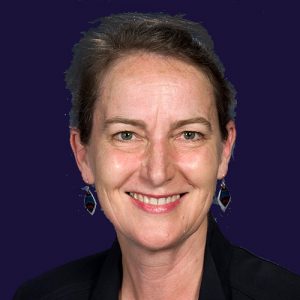
Australian Ambassador and Permanent Representative
to the United Nations and Conference on Disarmament in Geneva
Educated at University of Western Australia (BA Hons); Monash (Grad Dip, Business
Management; and ENA (French National School of Administration, Paris 1991-92).
She joined the then-Department of Foreign Affairs in 1985.
In Canberra she has worked on issues including the Middle East, Africa, services to
Parliament and Media, and the Pacific. She was Chief of Protocol from January 2012
– August 2014; head of Staffing branch from August 2014-Janury 2017. She was the
head of Human Resources from January 2017 until March 2018.
Postings have included Tel Aviv (1987-88); Noumea, Consul-General 1998-2001;
Minister, Australian Embassy Paris, and Ambassador to UNESCO (2007-2010). She
was seconded to the UN Drug Control Program as Deputy Director, Rangoon
Office,1993-95 and served as head of DFAT’s Perth office from 2004-2007.
She has taken part in a number of Emergency Response Teams (Phuket after the 2004 tsunami; second Bali bombing in 2005; and Dili in 2006); and in February 2016
headed the Crisis Response Team sent to Fiji in response to the Tropical Cyclone
Winston.
Sally is married, with one child.
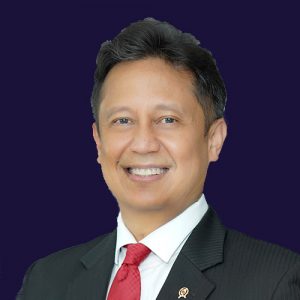
Minister of Health, Indonesia
Mr. Sadikin began his career in 1988 as the Information Technology Officer at
IBM’s Asia-Pacific Headquarters in Tokyo, Japan and worked at IBM until 1994
culminating as Manager of Systems Integration & Professional Services.
Subsequently, he joined PT Bank Bali Tbk. until 1999 and had held various
managerial roles, including General Manager of Electronic Banking, Chief General
Manager of the Jakarta Region, and Chief General Manager of Human Resources.
Mr. Sadikin then moved to ABN AMRO Bank Indonesia and remained there until
2004. His last position at the bank was Director of Consumer and Commercial
Banking (Senior Vice President) for ABN AMRO Bank Indonesia & Malaysia.
Following his time at ABN AMRO, Mr. Sadikin joined PT Bank Danamon Tbk. As
the Head of Consumer Banking (Executive Vice President) and later the Director
of Adira Quantum Multi Finance.
In 2006, he joined Bank Mandiri Tbk. as the Director of Micro & Retail Banking.
After which, he was assigned as President Director of Bank Mandiri in 2013 and
continued until March 2016. After completing his tenure at Bank Mandiri Tbk.,
he served as the Senior Advisor to the Minister of State-Owned Enterprises from
2016 until 2017 and afterwards was appointed as the Chairman for PT Indonesia
Asahan Aluminium (Persero).
Between September 2017 and November 2019, he was the Group Chief Executive
Officer of Mining Industry Holding Company, PT Indonesia Asahan Aluminium
(Persero) which is comprised of PT Aneka Tambang Tbk, PT Bukit Asam Tbk, PT
Timah Tbk, and PT Freeport Indonesia as Holding Members.
Currently, he serves as the Vice Minister I of State-owned Enterprises and is
tasked to establish market leading and globally competitive state-owned
enterprises. Concurrently, as of July 2020, Mr. Sadikin heads the National
Economic Recovery and Transformation Task Force amidst the COVID-19
pandemic in Indonesia.
Mr. Sadikin is actively involved in professional organization and holds various
positions, including Board Member of the Indonesian Bankers Association (IBI),
member of the Acquiring Business Executive Council of VISA Asia Pacific and
member of SWIFT Asia-Pacific Advisory Group (APAG), and as Advisory Board
Member of Association of Indonesia FinTech Startup Companies.
Universal Health Coverage cannot be achieved unless all people have affordable access to the eye care services they need. More than 2 billion people have a vision impairment and of these, at least 1.1 billion people are needlessly living with poor vision because they do not have access to basic eye care services. Those left behind are some of the poorest and most marginalised people in society.
In 2019, the World Health Organization launched the first World Report on Vision to draw attention to the growing need for eye care and offer recommendations to improve eye care services worldwide. Its key proposal is for all countries to provide integrated people-centred eye care services.
In 2020, Australia and Indonesia led a World Health Assembly resolution on Integrated People-Centred Eye Care (IPEC). The resolution was adopted with overwhelming support and more than 40 countries as co-sponsors. The resolution urges all countries to make eye care an integral part of their journey towards universal health coverage and to implement the recommendations of the World Report on Vision.
This year, the World Health Assembly will consider the adoption of two global targets for eye health for 2030. The proposed targets, endorsed by the WHO Executive Board, focus on the two leading causes of vision impairment, cataract and refractive error, and provide effective indicators to track changes in the uptake and quality of eye care services at the global level, but also contribute to monitoring progress towards Universal Health Coverage in general.
The global targets are vital for ensuring that the momentum built by the WHO’s World Report on Vision and the World Health Assembly resolution on integrated people-centred eye care (73.4), adopted last year, is not lost.